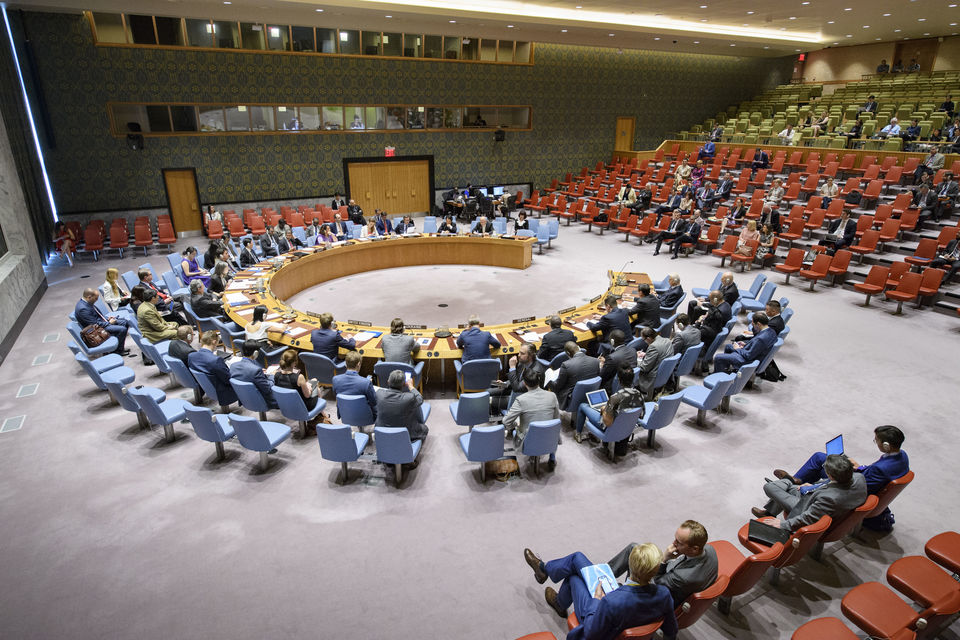Виступ делегації України на засіданні РБ ООН щодо ситуації в Сирії

I thank Special Envoy De Mistura for his continued efforts and commitment to the political resolution of the Syrian conflict.
We regret the fact that the latest round of intra-Syrian talks in Geneva did not bring much progress.
A breakthrough did not happen because the main ingredient for a sustainable solution is missing – the trust. Lack of trust is poisoning the current environment and dooms the Syrian people to more suffering. We are appalled by the reports that the Syrian regime is using cremation to hide mass murders at Sednaya prison, where thousands are believed to have been executed.
The general idea of de-escalation zones is welcomed; however the devil is always in the details. Thus far we are short of them. Still, we support all the efforts that genuinely seek to de-escalate violence in Syria and guarantee sustainable humanitarian access.
However, any talk on de-escalation zones is meaningless without a credible enforcement mechanism. Forgive me for being frank, but we really don’t see how this ceasefire/ (“slash”)
de-escalation is any different from the previous initiatives that ultimately failed. The general idea seems to be not new – we get a little period of calm followed by another wave of escalation, when the regime feels prepared for a new major offensive at time and a location of its choosing. We have yet to hear what the real tools are to prevent such a scenario from happening.
Another problem is the Syrian regime’s commitment to fighting ISIS, which is clearly lacking now. In the meantime, the regime and its allies are using the de-escalation agreement to shift focus to east trying to seize ground from anti-ISIS rebel forces in Al-Badia. How else would one interpret numerous attacks by the pro-regime forces on multiple fronts against the FSA that are waging relentless war on ISIS? Here are the words of Tlass Salameh, a commander of one of the FSA units leading a fight against ISIS:
“The regime is trying to cut us off from our frontline with ISIS because they want to be the ones to move from the southern desert up towards eastern Syria and Deir Az-Zour. Imagine that: they have ISIS behind them and instead they are bombing us, the ones fighting ISIS there”.
If anything, it only proves one more time that regime is sticking to its long-standing strategy – to eliminate militarily the Syrian opposition instead of ISIS. Indeed, the fight against ISIS has always been secondary to the regime and its allies. Why? Probably Damascus wants to leave the international community with a difficult choice: Assad or ISIS.
Therefore, it is imperative that this Council makes absolutely sure that the de-escalation zones are not used as yet another tool of the regime and its allies to regroup forces and prepare for an assault.
Finally, we remain convinced that unless serious pressure is applied on Damascus and accountability mechanism is established in Syria – we will not see any progress on the political track.
